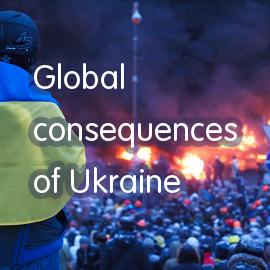The nightmare for German business: an “Asian Crimea”
As difficult as the Ukraine crisis is for German business, the real test would be an “Asian Crimea”
Since the annexation of Crimea and the subsequent chaos in eastern Ukraine, there has been an intense debate in Germany about Russia, the outcome of which is not yet clear. In particular, there has been much discussion about the role of economic interests in the German government’s reluctance to impose tough sanctions on Russia, which is perceived to be driven by the powerful Russia lobby. In fact, like Germany, the business community itself seems to be conflicted about Russia – torn between tough sanctions and business as usual.
Shortly after the annexation of Crimea, Siemens chief executive Joe Kaeser met President Vladimir Putin in Moscow and said that his company had done business in Russia for 160 years and would not allow “short-term turbulence” to affect it. But writing last month in the Financial Times, Markus Kerber, director-general of the Federation of German Industries, tried to correct the image of a “determined lobbying campaign by Russophile German industry” and said that German industry would support sanctions against Russia despite the costs.
However, as difficult as the Ukraine crisis is for German business, the real test would be an “Asian Crimea” – a nightmare scenario that policymakers and analysts have discussed in recent weeks. German companies have a long history in Russia, as Kaesar emphasised, but they see China as the future. The German government would likely come under even greater pressure than it has over Russia in recent weeks.
Since the financial crisis began in 2009, China has pursued a more assertive foreign policy and alienated most of its neighbours. During his recent visit to Asia, President Barack Obama sought to reassure regional allies about US commitment. But immediately after his visit, a Chinese state-owned oil company moved an oil rig to a site in the South China Sea between Vietnam and the disputed Paracel Islands, where Chinese and Vietnamese ships clashed.
In the last few years, tensions have also increased with Japan over the Senkaku/Diaoyu Islands in the East China Sea and with the Philippines over Scarborough Shoal in the South China Sea, which has been patrolled by Chinese ships since a confrontation in 2012. In an editorial on 6 April , the Wall Street Journal also warned that, by backing away from the “Six Assurances” towards Taiwan, the Obama administration could be “inviting China to think it can stage its own land grab at little cost to its relations with the US”.
If there were to be an “Asian Crimea”, German business would be placed in an even more difficult position in relation to China than it currently is in relation to Russia. Led by companies such as BASF and Volkswagen, which set up plants in China, German trade with China has dramatically increased in the last decade. In order to deepen trade ties with China, Chancellor Gerhard Schröder made a point of visiting China at least once a year in order to promote German businesses – a tradition Angela Merkel has continued and intensified.
Germany is now much more dependent on trade with China than with Russia. In particular, German exports to China dwarf its exports to Russia. In 2013, according to the German Federal Statistical Office, Russia was the eleventh largest destination for German exports; China was the fifth largest. German exports to Russia accounted for €36 billion; German exports to China accounted for €67 billion. China is now the biggest market for Volkswagen (the biggest foreign carmaker in China) and for the Mercedes S-Class.
Given its dependence on the Chinese market, German business would be even more opposed to the imposition of sanctions on China than on Russia. There is now also a powerful China lobby within Germany – the Asia-Pacific Committee of German Business plays a similar role to the Ost-Ausschuss, or Eastern Committee, which has opposed sanctions against Russia. The German government would likely be even more reluctant to take tough action that might threaten exports to China – which could create even greater rifts within Europe and between Europe and the US than in the current crisis.
Thus the possibility of an “Asian Crimea” illustrates the vulnerability of the German economy. Though successful, it relies on exports for 47 percent of its GDP – many of them destined for authoritarian states and revisionist powers. The structure of Germany’s economy means it may have to get used to the kind of dilemma it currently faces over Russia.

This commentary is part of a strand of work ECFR is running on the global consequences of the Ukraine crisis. The program will include longer policy briefs and reports and web publications as well as podcasts and public and private events.
The other articles in the series are:
Introduction: The global consequences of Ukraine
Consequences of Ukraine: The threat to the international system
In Asia, local concerns outweigh global significance of the Ukraine crisis
Consequences of Ukraine: Europe’s fragile cohesion
In Middle East, Ukraine crisis vindicates disillusion with West
The European Council on Foreign Relations does not take collective positions. ECFR publications only represent the views of their individual authors.



